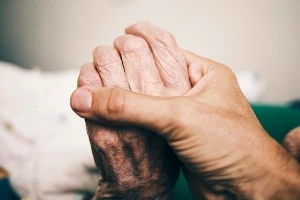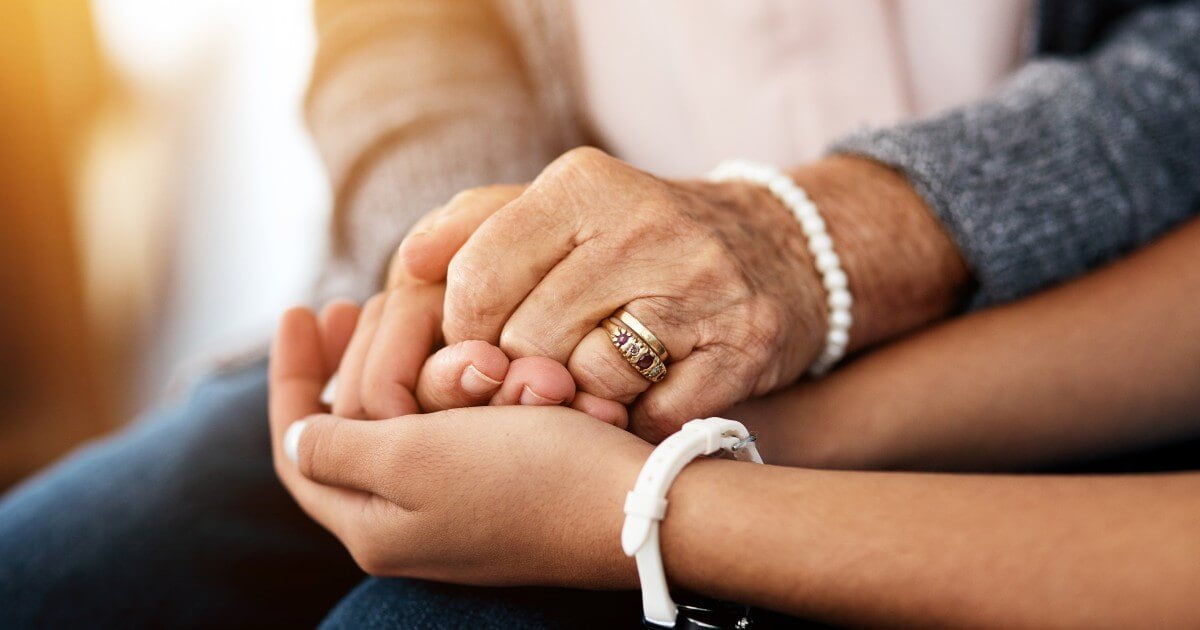
When you place your family member in a nursing home, you are entrusting their well-being to that facility and believing their staff will provide your loved one with the quality of care they deserve. But if instead, your loved one suffers fatal harm due to negligence or abuse, you may wonder what legal actions you can take for their wrongful death.
At PKSD, our experienced nursing home injury attorneys in Milwaukee understand the complex emotions and legal challenges families face after the preventable loss of a loved one in long-term care. While no amount of money can change what has happened, it can help to pay for medical costs and the pain and suffering your loved one experienced.
Not sure if you have a case? Contact our law offices for a FREE consultation. We welcome your questions and the opportunity to learn more about your situation. During this review, we can also help you understand what legal options you may have.
Call PKSD today. Let our family help yours. 414-333-3333.
Can I Sue a Nursing Home if My Loved One Died There?
The short answer is yes – you may be able to seek compensation for damages if a nursing home’s negligence or abuse ultimately caused your loved one’s death. However, you must be able to prove what happened, and strict filing deadlines apply. Given the complex nature of nursing home wrongful death claims, we strongly recommend seeking legal help to make sure your rights and best interests are protected during the legal process.
At PKSD, we have a strong history of success, and our knowledgeable legal team is ready to get to work on your behalf right away.
When Can Nursing Homes Be Liable for the Death of a Resident?
Nursing homes may be liable if their actions or inactions cause a resident to suffer fatal harm that could have been prevented with proper care.
These are some examples of negligent or abusive care in a nursing home:
- Medication Errors due to negligence, understaffing, inadequately trained staff
- Bedsores, such as those caused by not turning a bedridden patient regularly
- Infections due to poor hygiene, sanitation issues or lack of medical care
- Malnutrition or dehydration caused by not providing proper nutrition care
- Delayed medical care, or a full failure to monitor, assess, or treat an injury or illness
- Unsafe living conditions resulting increasing the risk of a dangerous fall
- Failing to properly monitor residents, especially those prone to falls or more likely to wander
- Understaffing resulting in inadequate care of residents
- Failure to protect residents from physical, sexual, or emotional abuse from nursing home staff or from other residents.
- Negligent hiring of caregivers who are either not properly qualified or who have a history of violence
How Do I Know if I Have a Wrongful Death Case Against a Nursing Home?
Under Wisconsin law, it is not enough to suspect your loved one’s death was the result of their nursing home’s negligent or abusive actions.
To have a case, your attorney must be able to establish these key elements:
- The nursing home owed your loved one a duty of care – created when your loved one was admitted to the facility.
- The legal duty of care was violated in some way – such as by the abusive acts of a caregiver, or negligent care.
- Negligent or abusive actions resulted in an incident that harmed your loved one.
- Your loved one suffered real damage, including medical costs and pain and suffering, as a result.
At PKSD, we can review the circumstances of your situation in a free consultation to determine whether you may have a case.
How Long Do I Have to File a Wrongful Death Lawsuit in Wisconsin?
You have three years from the date your loved one died to file a wrongful death lawsuit in Wisconsin. If you miss this deadline, you lose your right to file a lawsuit, no matter how strong your case is. The time to file a lawsuit starts immediately when death occurs, not when you discover the negligence or realize you might have a case.
Three years may sound like a long time, but it is vital to the success of your case that you seek legal help right away. These cases are extremely complex, and it takes time to build a solid case. Evidence disappears quickly, security footage gets deleted, medical records become harder to get, and staff members leave or forget what happened. In short, the longer you wait, the weaker your case becomes, and the harder it is to prove what happened.
If you suspect negligent or abuse led to your loved one’s death, it is in your best interests to seek legal help right away.
Who in My Family Can Sue the Nursing Home for Wrongful Death?
Wisconsin law limits who can file a wrongful death lawsuit to protect against multiple family members suing for the same death. Only specific people have legal “standing” to bring these claims, and it depends on who survived your loved one.
Grandchildren, siblings, aunts, uncles, and other relatives are generally not able to file a wrongful death claim, even if they were close to your loved one or provided care. The law focuses on direct family relationships.
Immediate Family Members
Your loved one’s spouse has the primary right to file a wrongful death lawsuit, even if they are separated. If there is no surviving spouse, then adult children can file the claim together. Your loved one’s parents may be eligible to sue if the victim had no spouse or children, and if the deceased was an adult.
Exceptions
If your loved one named someone in their will, that person might be able to file a wrongful death claim on behalf of the estate. Sometimes, adult children who are adopted still have the right to sue. In some cases, stepchildren do not unless they are legally adopted.
How Much Compensation Can We Recover From a Wrongful Death Case?
The compensation for any injury case, including wrongful death, varies significantly based on multiple factors. Generally, these are the types of damages you may be able to seek on your loved one’s behalf:
- Economic Damages: Includes medical expenses, funeral costs, and lost financial support the deceased would have provided. In some cases, Social Security benefits may count as financial support.
- Pain and Suffering Damages: This could be substantial if your loved one experienced conscious pain or distress before their death.
- Punitive Damages: These additional damages may be awarded to punish the defendant for willful or malicious harm your loved one suffered. These damages are limited, however, to $200,000 or twice the awarded compensation.
- Family-Specific Losses: Adult children may be able to recover compensation for lost guidance and support. Spouses may be eligible to recover compensation for their losses as well, including the loss of companionship and emotional support.
Evidence That Can Help Strengthen a Wrongful Death in a Nursing Home
To prove your loved one’s death was the result of nursing home negligence or the abusive actions of a caregiver or another resident, you will need evidence. In a nursing home wrongful death case, evidence may include:
- Medical records
- Witness testimony
- Expert medical testimony
- Photography and physical evidence
- Financial and operational evidence
- Regulatory violations and inspection reports
- Coroner and autopsy reports explaining the cause of death
- Administrative records such as admission assessments and care plans
- Facility documents that include staffing schedules, training records, and internal incident reports
One critical factor that gives your wrongful death claim an optimal chance for success is not waiting to seek legal help. At PKSD, we can send preservation letters to the nursing home, to ensure they do not destroy or alter essential records, like surveillance footage, that could help your case.
Why Call PKSD Legal Help After the Nursing Home Wrongful Death of a Loved One in Milwaukee
When nursing homes fail to provide proper care, resulting in a loved one’s death, Wisconsin law allows families to seek compensation. These cases require quick action and specialized legal knowledge to build a strong claim.
PKSD handles nursing home wrongful death cases and fights for the justice you and your loved one deserve. We handle the legal work so you can focus on your family during this challenging time. Contact our office or fill out our contact form today to schedule a complimentary consultation about your case.
Call our trusted law firm today: 414-333-3333.






